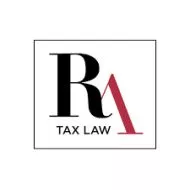On April 29, 2020, the Canada Border Services Agency (CBSA) launched the digital application ArriveCAN to streamline the collection of contact and health information from travellers and facilitate quarantine measures. However, recent developments have shed light on significant shortcomings in the management of this critical application.
The House of Commons, on November 2, 2022, passed a motion urging the Office of the Auditor General of Canada to conduct a performance audit of the government's handling of the ArriveCAN application. Subsequently, on February 12, 2024, Auditor General Karen Hogan presented a report concluding the Government failed to follow good management practices in the contracting, development, and implementation of the ArriveCAN application.
One of the key findings from Auditor Hogan's report was that 18% of invoices submitted lacked sufficient information. The CBSA's documentation, financial records, and controls were so poor that Auditor Hogan was unable to determine the precise cost of the ArriveCAN application. Using the information that was available, Auditor Hogan estimated the cost at approximately $59.5 million. Auditor Hogan estimated that the average per diem cost for the ArriveCAN external resources was $1,090, whereas the average cost for an equivalent IT position in the Government of Canada was $675.
The heavy reliance on external resources during the initial stages of the COVID-19 pandemic, due to resource constraints, significantly increased the costs associated with ArriveCAN. The CBSA's failure to adhere to policies, controls, and transparency in the contracting process limited competition and undermined the value of taxpayers' money. Auditor Hogan found that the agency had little documentation to support how and why GC Strategies was awarded the initial ArriveCAN contract through a non-competitive process. Auditor Hogan also found that GC Strategies, ArriveCAN's highest paid contractor, was subsequently involved in the development of the requirements that the agency included in the request for proposal for its competitive contract.
While it might seem reasonable to assume that these contractors performed their duties meticulously, the reality was quite the opposite. Between April 2020 and October 2022, the CBSA rolled out 177 versions of ArriveCAN with minimal documentation of testing. In one instance, in June 2022, approximately 10,000 travelers received incorrect quarantine instructions.
Auditor Hogan also uncovered evidence indicating that certain CBSA employees had been invited to dinners and other activities by contractors. Despite the encouragement for departments and agencies to be flexible due to the urgent demands of the pandemic response, prioritizing the documentation of decisions, showcasing transparency and the responsible utilization of public funds should have been upheld.
Between April 2020 and July 2021, there was no formal agreement between the Public Health Agency of Canada and the CBSA to define their respective roles and responsibilities. This lack of a designated lead resulted in the neglect of essential project management practices, including establishing project objectives and goals, creating budgets and cost estimates, and implementing risk management activities.
Ultimately, the findings outlined in the Auditor General's report indicate shortcomings in the management of the ArriveCAN application, resulting in inefficiencies and a failure to maximize the value of taxpayer investment. As such, it is imperative that the Canadian government foster accountable governance practices so that the efficient management of taxpayer resources remains paramount for ensuring the effective delivery of public services and upholding trust in governmental institutions.
The content of this article is intended to provide a general guide to the subject matter. Specialist advice should be sought about your specific circumstances.


